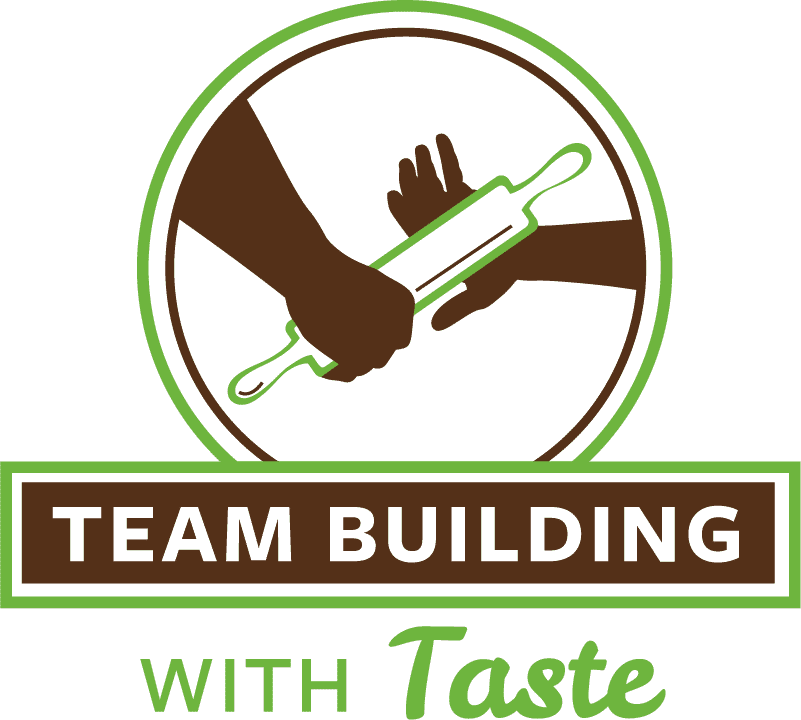How Team Building Supports Teamwork in the Workplace

On paper, teamwork in the workplace seems like it should be an easy thing to achieve: A group of people works together towards a common goal. However, in real life situations, teamwork is rarely easy. Sometimes, groups of people have a natural chemistry, and require little team-building guidance. Most of the time, though, teams have differing or conflicting personalities and opinions. In these cases, team building is critical for an organization’s long-term goals.
What is Team Building in the Workplace?
Team building in the workplace is not a static, one-time thing; it is a dynamic that develops and evolves over time. A solid team forms a cohesive unit that has minimal discord. That said, disagreements are natural and can even be beneficial when a group is developing an idea or product.
The foundation of team building is trust. Without mutual trust between people, any team will splinter, even when everyone’s goal is the same. Trust provides the groundwork for individuals to be able to voice opinions, and build a supportive network.
Respect is the next most important aspect of team building. In order for employees to perform at their best, they have to maintain respect for their colleagues even when there are differences of opinion.
Team building activities provide a safe and neutral platform outside the bounds of the workplace for people to revisit their existing dynamics in a new way. These activities can include sporting events, socials, ropes courses, and culinary events, among others.
Why is Team Building Important?
Team building in the workplace is important because a healthy, trusting, inter-communicating team will be far happier and productive than a team which does not have these qualities.
Good teams will also be more willing to explore creative solutions to achieving goals. Teamwork fosters a climate of cooperative problem-solving. Happy employees will have a higher job satisfaction, and be more likely to stay for the long term.
Poor team dynamics will result in:
- higher turnover
- lower output
- hostility among staff members
- possible delays in meeting goal deadlines.
Customers may even start to notice a decrease in the service or product they receive.
It is in any organization’s best interest to recognize unhealthy team dynamics and work to resolve the issues.
How to Build a Healthy and Effective Team
Any team’s dynamics start with the manager. It is crucial that the manager uses their power and influence to lay the foundation for a trusting environment. Managers that use their power to instill fear into their employees will create a nervous, uncertain environment that will be less productive than their healthy counterparts.
 Establish the organization’s values and goals: It’s important for the manager to keep the employees updated on the progress towards the organization’s goals, as well as existing or upcoming challenges. Employees will feel more important and included, as opposed to feeling like a part in a machine. Including everyone under the team’s umbrella will open the door to performance improvements and further success.
Establish the organization’s values and goals: It’s important for the manager to keep the employees updated on the progress towards the organization’s goals, as well as existing or upcoming challenges. Employees will feel more important and included, as opposed to feeling like a part in a machine. Including everyone under the team’s umbrella will open the door to performance improvements and further success.
Encourage Trust: The trust and relationships between employees will ultimately drive an organization’s success or failure. A manager can pay attention to how individual dynamics develop. They can pair harmonious employees together, or work to improve the cooperation between employees who may not agree with each other.
Emphasize communication: Only the individual knows what he or she is thinking. It’s important for employees to communicate their frustrations, compliments, or ideas so that resent and dissent do not start to grow.
Sensitivity to unspoken feelings: A manager will set a good precedent to their team by being open and sensitive to their employees’ moods, feelings, and life events.
Mediate Conflict: If a manager sees a conflict, he or she should take the opportunity to resolve these disputes, and continually remind of the common goal. If the conflict persists or grows, then it may be time to consider some team building activities.
Every team dynamic is different, of course. In all cases, positive, healthy, and productive environments start with the manager. It is the manager’s responsibility to build and nurture their team in order to achieve the organization’s established goals and values.
Team Building With Taste and You
Why is team building is important? Culinary team building activities provide a unique environment for your team to work together, learn cooperation and communication, and troubleshoot any problems that may arise. These new dynamics can easily translate into your office’s environment. At Team Building With Taste, our goal is to help your team learn to set aside their differences and work together.

